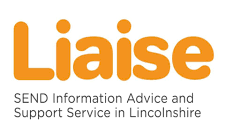What is SEN support?
It is particularly important in the early years that there is no delay in making any necessary special educational provision (support). Whether or not your child is in an early years setting, support for your child’s SEN can take several forms, including (but not limited to):
- specialist support from health visitors, educational psychologists, speech and language therapists, or specialist teachers, such as a teacher of the deaf or visually impaired. These specialists may visit families at home to provide practical support, answering questions and clarifying needs
- early learning programmes training to promote play, communication and language development
- home-based programmes, such as portage, which offer a carefully structured system to help parents support their child’s early learning and development
If your child is in an early years setting, the SENDCo and pre-school staff will want to plan with you the best way of meeting your child’s needs. This could include:
- building on your child’s strengths and what they can do, providing appropriate toys and materials, or
- agreeing approaches to be used
All early years’ settings who receive local authority funding should have a member of staff appointed as the SENDCo. This is the member of staff who has responsibility for planning support for children with SEN, seeking advice and support from other professionals, and talking to you.
When your child is identified as having SEN, the school should use a graduated approach based on four steps. These are:
Assess, Plan, Do and Review
Assess
The early year’s practitioner working with the settings SENDCo and the child’s parent’s, should assess the child’s needs, so that they give the right support. Where there is little or no progress or improvement, it may be necessary to involve more specialist professionals such as specialist teachers, health, or social services for more detailed assessments.
Plan
If the practitioner decides that your child needs SEN support, they should formally notify the parents. In consultation with the parent, the practitioner and the SENDCo should agree the outcomes that they want to achieve, together with the interventions and support to be provided and the expected impact upon progress, development, or behaviour. A date to review these should be set.
Any relevant staff training or development needs should be identified and agreed.
The SEN Code of Practice says "parents should be involved in planning support and, where appropriate, in reinforcing the provision or contributing to progress at home"
Do
Your child’s key person usually remains responsible for working with the child every day, supported by the settings SENDCo. The SENDCo should be overseeing the implementation of the interventions or support programme agreed and assisting the key person in assessing the effectiveness of the SEN support upon the child’s progress and development.
Review
The effectiveness and quality of the interventions and support should be evaluated by both the practitioner (key person) and the SENDCo considering the child’s views. This should be done in line with the review date already agreed. Any changes to the outcomes and support should be agreed in line with the child’s progress and development. Parents should be kept updated with clear information on the impact the SEN support is having upon the child and be involved in the planning of the next steps.
This four-step cycle should be revisited on a regular basis and with increasing frequency and detail to identify the best way to secure good progress. Intended outcomes should be shared and reviewed with parents together with actions taken by the setting at agreed times.

